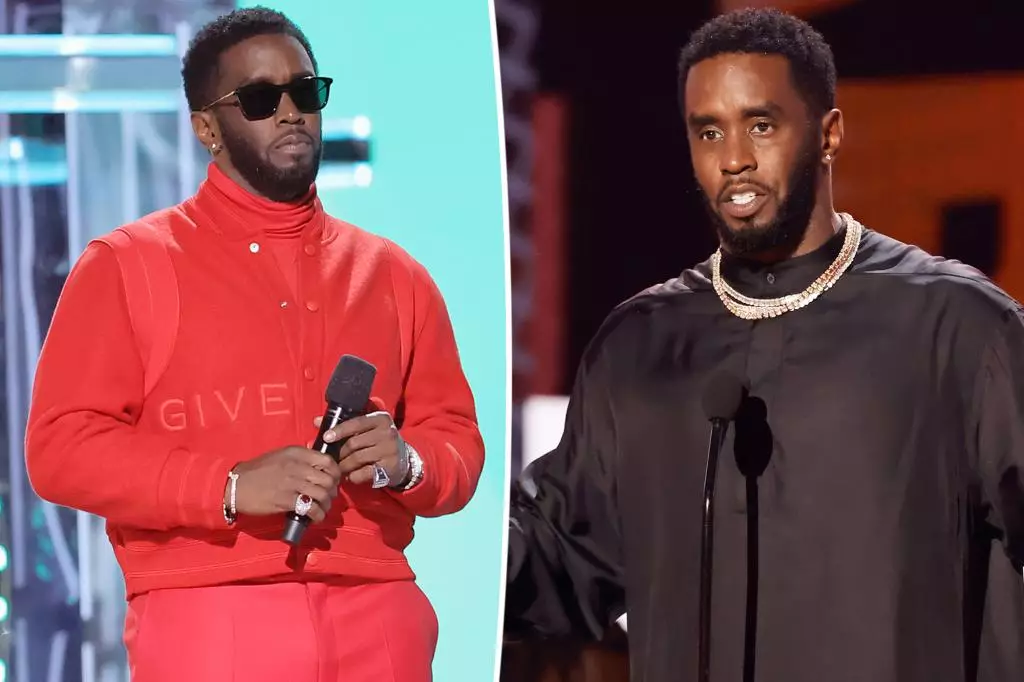Sean Combs, known widely as Diddy, finds himself enmeshed in a significant legal battle involving serious charges such as racketeering conspiracy, sex trafficking, and related offenses. The indictment, which paints a disturbing picture of his alleged behavior over the years, claims that the music mogul has exploited women and created an environment rife with criminal activity for personal gratification and reputation protection. The accusations bring forth a chilling narrative of not just individual misconduct but also a broader pattern of systemic exploitation, purportedly involving associates in a structured criminal enterprise.
This legal turmoil is further complicated by the expectation of Diddy testifying in his own defense—a decision fraught with peril. Legal experts, including attorney Meesha Moulton, caution that testifying could prove to be a significant risk for Combs. The process of cross-examination that follows can be particularly grueling, exposing the defendant to intense scrutiny and pressure from prosecutors determined to find contradictions in his statements.
Cross-examination is an essential aspect of the adversarial legal system, and it can often be mentally taxing, as highlighted by Moulton. Diddy’s potential testimony could lead to aggressive questioning that aims to unearth inconsistencies or details that might weaken his defense. Her insight underscores an important principle of criminal defense: the risks of testifying often outweigh the potential benefits. Moulton argues that if Combs appears flustered or inauthentic during his testimony, it could severely tarnish his credibility in the eyes of the jury.
The notion of maintaining composure under pressure emerges as a critical theme. Juries are not just swayed by facts; they are influenced by the demeanor and authenticity of the individuals presenting those facts. If Diddy struggles with the emotional burden of his situation, it could inadvertently paint him in a negative light, leading to prejudiced views before the jury even hears the evidence.
Diddy’s attorney, Marc Agnifilo, has asserted that his client is eager to share his narrative, presenting it as a tale of love and personal struggle. However, Moulton advises a strategic pivot—prioritizing defense tactics over personal expression. While storytelling in court can shift attention away from the prosecution’s narrative, it must be executed with utmost care.
Indeed, the focus should arguably be less on providing a subjective portrayal of oneself and more on dismantling the prosecution’s case effectively. If Combs can successfully highlight weaknesses or inconsistencies in the evidence against him, it could lead jurors to question the credibility of the prosecution. Moulton describes this as creating complexity in a situation where the prosecution’s claims could seem straightforward.
A well-rounded presentation might humanize Diddy and provide jurors with a broader context about his contributions to society. It may also help exhaust any potential assumptions they might have about his character based solely on his notoriety and the serious charges laid against him.
The context surrounding the allegations is critical—for Diddy, they are alarming. The indictment details an array of accusations that point to a lifestyle marked by exploitation of women at parties characterized as “Freak Offs.” The specificity of these allegations, involving a staggering number of items like baby oil and lubricant, reveals operation logistics that could bolster the prosecution’s claims regarding a well-orchestrated environment of exploitation.
Furthermore, the indictment portrays a systematic method to control narratives, both from victims and potential witnesses, showcasing attempts to mitigate any backlash from these alleged activities. The evidence from raids, including the finding of large quantities of materials associated with these events, further complicates his case. Such findings could serve as a stark visual representation of the allegations, making it harder for the jury to separate rumor from reality.
With a status hearing approaching, the timeline for Diddy’s trial remains uncertain. Nevertheless, the stakes are undeniably high. Conviction could lead to extensive prison time—at least 15 years—which would mark a dramatic fall from grace for a man who has occupied a top-tier position in the entertainment industry for decades. The impending proceedings will test not only Diddy’s legal strategy but also the public’s perception of him in relation to the serious allegations he faces.
As he navigates this turbulent domain, the interaction of personal narrative and hard evidence will likely dictate the outcome. Diddy must carefully consider the nuances of his testimony against the backdrop of possible cross-examination realities. Only time will reveal if his desire to share his story aligns with a successful legal strategy.

Leave a Reply